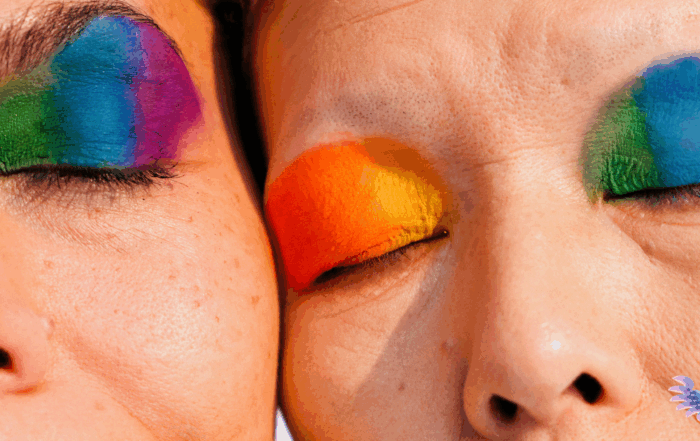According to the Human Rights Campaign (HRC), 2021 marks the year with the most anti-trans legislation in history. In March, more than 80 bills were presented for consideration and by the end of April, the tally had risen to well over 100 as reported by CNN. More than half of these legislative actions directly target transgender people.
Among the key issues touched on by these bills is trans athletics. Within a day of each other, for instance, the Florida Senate passed an anti-trans sports bill while the Governor of West Virginia signed one into law.
These actions are at their core nothing more than deliberate attempts to discriminate against transgender persons and members of the LGBTQ community at large, in what appears to be a spirited crusade aimed at reversing advances made in the quest for equality.
Various groups have called out these attempts to unfairly and unjustly shut out trans athletes despite sports organizations having inclusive policies that have allowed them to participate at a state, collegiate and professional level for years. They rightly argue that these laws are based on discrimination and intolerance rather than fact or reasonable basis.
“Legislators across the country have neglected to name any examples of the sky falling based on transgender athletes’ participation in youth sports. That is because those examples simply don’t exist, and athletic organizations have welcomed transgender athletes’ participation for years without incident.” — Human Rights Campaign President, Alphonso David
By and large, the anti-trans sport movement bases its discriminatory stance on the premise that trans athletes – particularly trans females – benefit from an “unfair physiological advantage” owing to higher testosterone levels compared to their counterparts.
But does scientific evidence tell a different story? Indeed it does – science tells a story that’s worlds apart.
First, this faulty argument fails to take into consideration women who have naturally elevated levels of testosterone.
Second, numerous studies have established without a doubt that trans women have no advantage over cisgender women. Take, for instance, this study published in the Sports Medicine journal whose findings were that there is no direct or consistent research to suggest that either transgender female individuals or male individuals have an athletic advantage at any stage of their transition (e.g. cross-sex hormones, gender-confirming surgery).
In fact, the study found that:
- Trans athletes have a negative experience of competitive sport and sport-related physical activities
- There is a need for improved accessibility to sport-related physical activity
- Perceived advantages possessed by trans athletes have been over-interpreted by many sport organizations
- The barriers transgender people experience deprive them of the established mental and physical health benefits of engaging in physical activity
It’s evident that rather than benefiting from any edge, trans men and women are instead faced with numerous setbacks. There should, therefore, be more attention given to the trans disadvantage and more efforts to eradicate the stumbling blocks put up to hinder the progress of trans athletes. If there is any corrective action needed to level the playing field, it should be taken to empower trans athletes.
Another false attack levied against trans athletes by the rising number of anti-trans groups is that the inclusion of trans women in sports has a negative impact on cis women. On the contrary, as the ACLU rightly puts it, “excluding women who are trans hurts all women.” That’s because it paves the way for gender policing which any woman – trans or cis – can be subjected to. This can take many forms, such as invasive tests and physical appraisals that lead to labeling and discrimination with the potential of resulting in harassment, exclusion or even abuse.
Anti-trans campaigners also cite the sex binary as a clause upon which to exclude trans athletes. They argue that sex is only manifest as either male or female, presented at birth and identifiable through singular biological characteristics. This argument is flawed, as it fails to take into consideration the fact that biological characteristics must not always manifest as male or female. Moreover, transition is not merely a physical process but rather one that has social and psychological facets as well. After all, our identity is richer and more complex and comprehensive than just the sex we are assigned at birth.
Unlike their detractors, trans athletes have scientific evidence on their side. They have no upper hand but instead fare worse off than their cisgender contemporaries as a result of the targeting, profiling, exclusion, segregation, and discrimination they face. All of this not only does harm to the transgender, gender expansive, and non-binary athletes it is aimed at but also to the sports fraternity as a whole.
According to the Human Rights Campaign (HRC), 2021 marks the year with the most anti-trans legislation in history. In March, more than 80 bills were presented for consideration and by the end of April, the tally had risen to well over 100 as reported by CNN. More than half of these legislative actions directly target transgender people.
Among the key issues touched on by these bills is trans athletics. Within a day of each other, for instance, the Florida Senate passed an anti-trans sports bill while the Governor of West Virginia signed one into law.
These actions are at their core nothing more than deliberate attempts to discriminate against transgender persons and members of the LGBTQ community at large, in what appears to be a spirited crusade aimed at reversing advances made in the quest for equality.
Various groups have called out these attempts to unfairly and unjustly shut out trans athletes despite sports organizations having inclusive policies that have allowed them to participate at a state, collegiate and professional level for years. They rightly argue that these laws are based on discrimination and intolerance rather than fact or reasonable basis.
“Legislators across the country have neglected to name any examples of the sky falling based on transgender athletes’ participation in youth sports. That is because those examples simply don’t exist, and athletic organizations have welcomed transgender athletes’ participation for years without incident.” — Human Rights Campaign President, Alphonso David
By and large, the anti-trans sport movement bases its discriminatory stance on the premise that trans athletes – particularly trans females – benefit from an “unfair physiological advantage” owing to higher testosterone levels compared to their counterparts.
But does scientific evidence tell a different story? Indeed it does – science tells a story that’s worlds apart.
First, this faulty argument fails to take into consideration women who have naturally elevated levels of testosterone.
Second, numerous studies have established without a doubt that trans women have no advantage over cisgender women. Take, for instance, this study published in the Sports Medicine journal whose findings were that there is no direct or consistent research to suggest that either transgender female individuals or male individuals have an athletic advantage at any stage of their transition (e.g. cross-sex hormones, gender-confirming surgery).
In fact, the study found that:
- Trans athletes have a negative experience of competitive sport and sport-related physical activities
- There is a need for improved accessibility to sport-related physical activity
- Perceived advantages possessed by trans athletes have been over-interpreted by many sport organizations
- The barriers transgender people experience deprive them of the established mental and physical health benefits of engaging in physical activity
It’s evident that rather than benefiting from any edge, trans men and women are instead faced with numerous setbacks. There should, therefore, be more attention given to the trans disadvantage and more efforts to eradicate the stumbling blocks put up to hinder the progress of trans athletes. If there is any corrective action needed to level the playing field, it should be taken to empower trans athletes.
Another false attack levied against trans athletes by the rising number of anti-trans groups is that the inclusion of trans women in sports has a negative impact on cis women. On the contrary, as the ACLU rightly puts it, “excluding women who are trans hurts all women.” That’s because it paves the way for gender policing which any woman – trans or cis – can be subjected to. This can take many forms, such as invasive tests and physical appraisals that lead to labeling and discrimination with the potential of resulting in harassment, exclusion or even abuse.
Anti-trans campaigners also cite the sex binary as a clause upon which to exclude trans athletes. They argue that sex is only manifest as either male or female, presented at birth and identifiable through singular biological characteristics. This argument is flawed, as it fails to take into consideration the fact that biological characteristics must not always manifest as male or female. Moreover, transition is not merely a physical process but rather one that has social and psychological facets as well. After all, our identity is richer and more complex and comprehensive than just the sex we are assigned at birth.
Unlike their detractors, trans athletes have scientific evidence on their side. They have no upper hand but instead fare worse off than their cisgender contemporaries as a result of the targeting, profiling, exclusion, segregation, and discrimination they face. All of this not only does harm to the transgender, gender expansive, and non-binary athletes it is aimed at but also to the sports fraternity as a whole.







